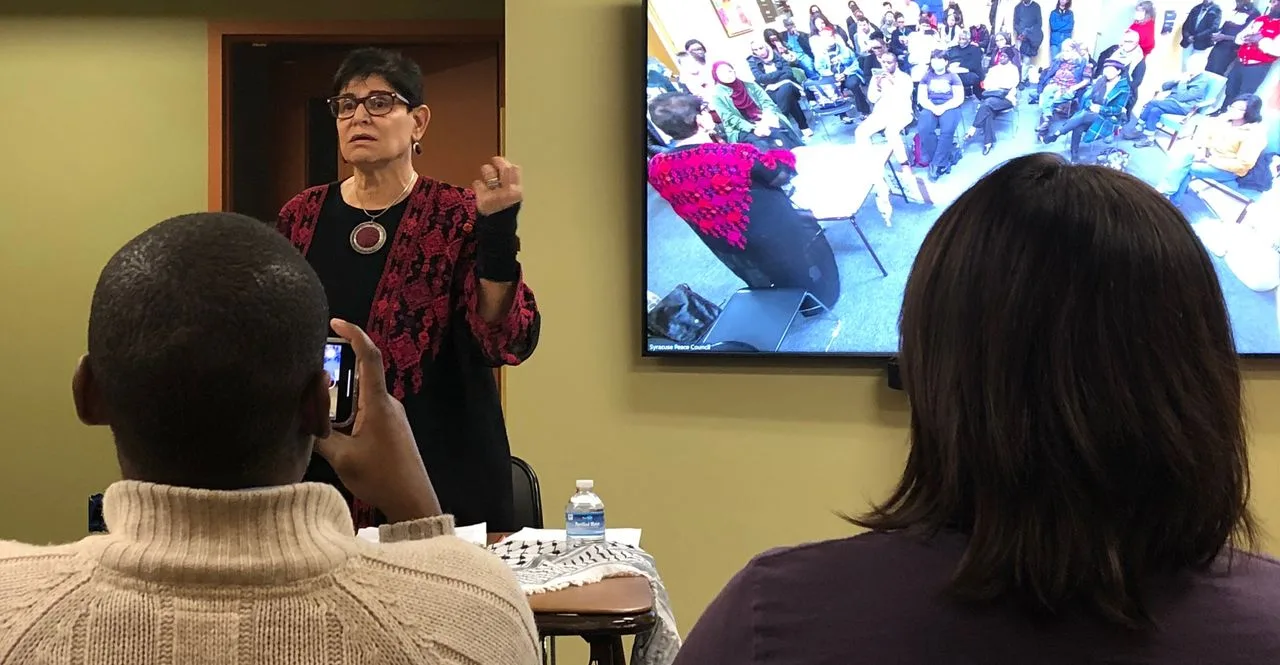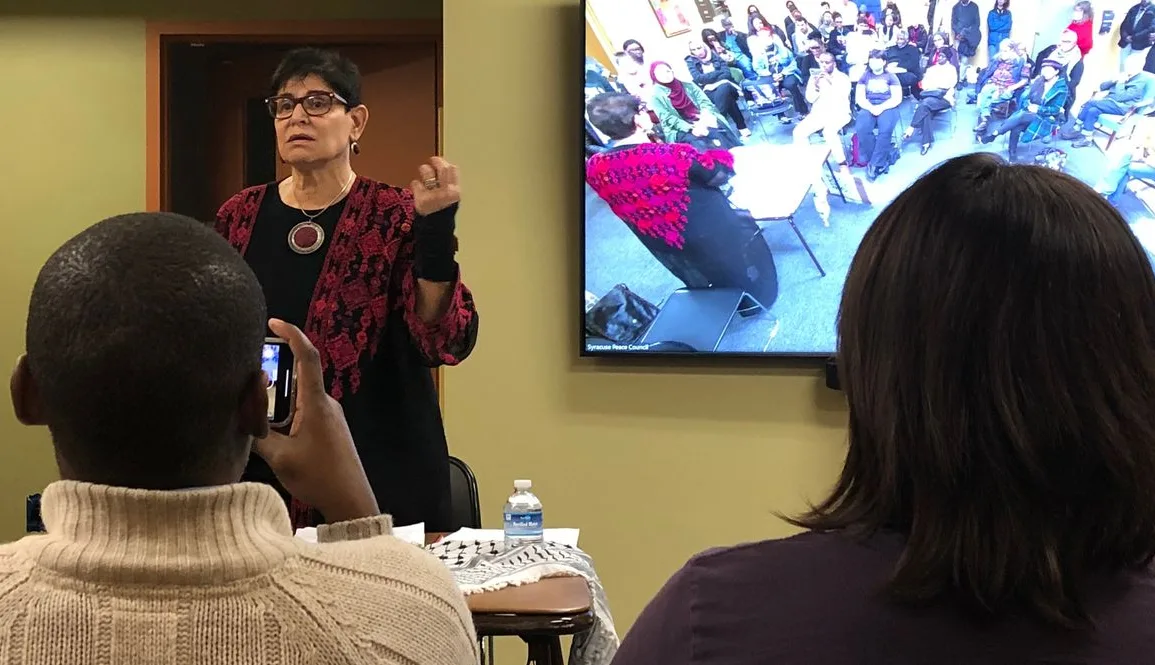
Syracuse, N.Y. — After Syracuse University canceled a teach-in by a scholar of Middle East studies, organizers went ahead with the event off-campus in Syracuse Tuesday night.
Organizers, which included SU professor Horace Campbell and several student groups, held the event at the Syracuse Center for Peace and Social Justice on East Genesee Street. In promotional material, the event was called “Teach In: The Occupation of Palestine.”
The scholar, Rabab Abdulhadi, an associate professor at San Francisco State University and director of its Arab and Muslim Ethnicities and Diasporas Studies program, spoke to about 30 people.
Earlier Tuesday, two top SU officials, Chancellor Kent Syverud and Provost Gretchen Ritter, sent an email to the campus community saying the teach-in could not be held on-campus due to safety concerns.
The event arrived amid a dramatic increase in antisemitism and Islamophobia following the Oct. 7 surprise attack by fighters from the extremist group Hamas and other organizations on southern Israel. The attackers killed an estimated 1,300 people and took roughly 200 hostage. Israel has fought back by bombing Gaza, resulting in about 8,000 deaths.
Benjamin Tetteh, one of the event’s organizers, said it was important to provide a platform for the university community to understand what was happening in the region.
“We are here because we are students and we want to learn,” he said.
Abdulhadi has attracted criticism from some pro-Israel groups. In the past, she was criticized for praising Leila Khaled — a member of the Popular Front for the Liberation of Palestine, which is designated by the U.S. government as a terrorist organization.
On Tuesday night, Abdulhadi spent some time reviewing her decades-long career in academia, but much of her remarks were on tracing the centuries of history that came before the Oct. 7 attack.
The professor began in 1492, when the Spanish crown finished its reconquest of the Iberian Peninsula and exiled Jews and Muslims. She repeated other examples of what she said were shared struggles between the two religious groups and other minorities.
“To be able to address antisemitism and fight against antisemitism, you have to get to the root causes of antisemitism. It is discrimination against Jews the same way — not exactly the same way, but similar — to anti-Blackness, to Islamophobia, to attacks against Indigenous people, Asian people,” she said. “This is where the hate comes from.”
Abdulhadi emphasized she is fervently against the way European countries largely set the current national borders in the Middle East, including the creation of Israel in 1948 as an exclusively Jewish state. She does not want claims of any group to be elevated over another.
“Palestine is about, really, pluralism. … This is the land of the holy religions and more,” she said. “It is very difficult to even talk with anybody who thinks that you are not equal.”
Abdulhadi called for the audience to rally around several goals — an immediate ceasefire, allowing more humanitarian aid to enter Gaza, exchanging political prisoners for the hostages and halting all American aid to the Israeli government. She also urged boycotting companies that do business in Israel, and divest from and sanction the government as a way to apply more pressure.
“Why are we patronizing big businesses which are day in and day out supporting the carnage?” she said. “It is not OK by any measure, we have to hold them accountable.”
She was hosted by the African Graduate Students Network, Black Graduate Student Association and Campbell, a professor from the African American Studies department.
Staff writer Jon Moss covers breaking news, crime and public safety. He can be reached at jmoss@syracuse.com or @mossjon7.


